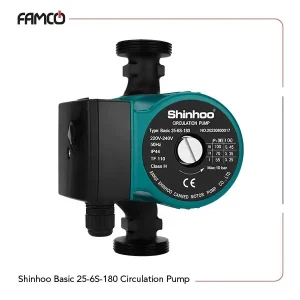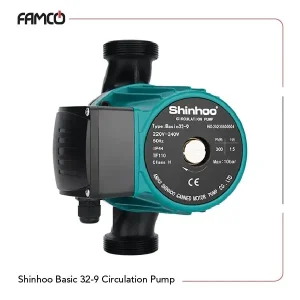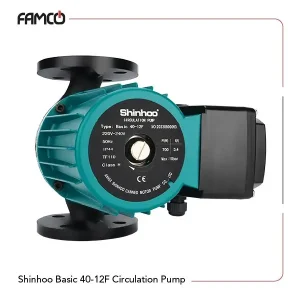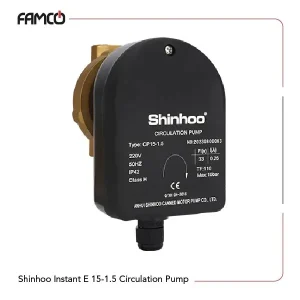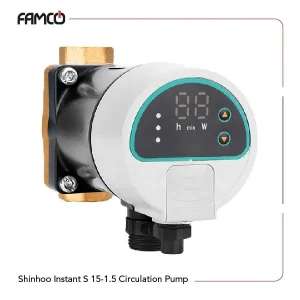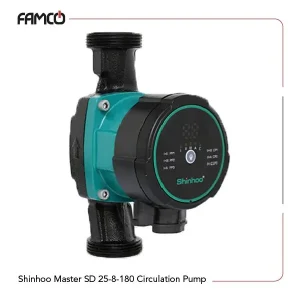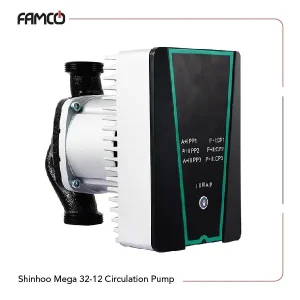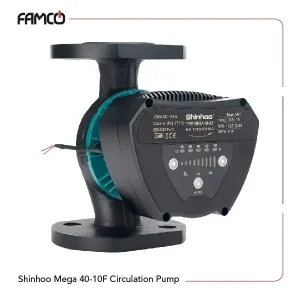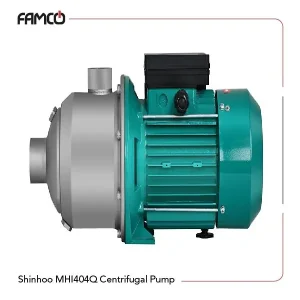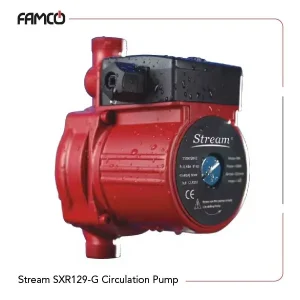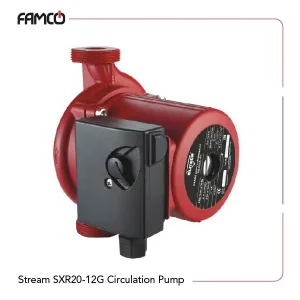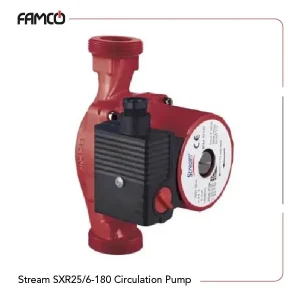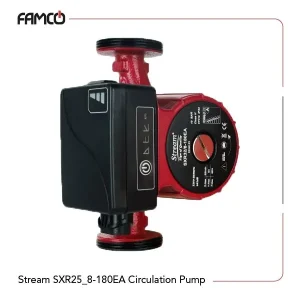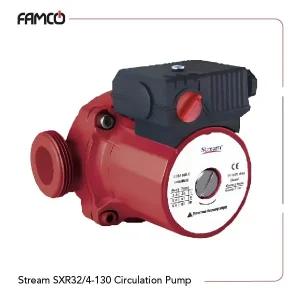What is a Circulation Pump?
A circulation pump, also known as a circulator pump, is a type of pump used to move liquids in a closed circuit. Commonly used in heating, ventilation, and air conditioning (HVAC) systems, circulation pumps ensure consistent flow of hot or cold water, maintaining even temperature distribution. These pumps are essential in both residential and industrial applications, including hydronic heating systems, solar water heaters, and domestic hot water recirculation.
Circulation Pump Applications
Circulation pumps are essential components in a wide range of residential, commercial, and industrial systems. In homes, they are typically used in heating systems to circulate hot water from the boiler to radiators or underfloor heating networks, ensuring uniform warmth throughout the space.
They are also commonly found in domestic hot water systems, where they recirculate water to provide instant hot water at taps, reducing water waste. In commercial and industrial settings, circulation pumps play a critical role in HVAC systems, solar thermal applications, and process systems that require consistent fluid movement for temperature control. Their reliability and efficiency make them a popular choice for systems that demand continuous and controlled fluid circulation.
Circulation Pump Advantages
Using a circulation pump offers several notable advantages. One of the most significant is energy efficiency, especially in newer models equipped with variable-speed motors and smart sensors that adapt to system demands. This not only reduces electricity consumption but also extends the life of the pump.
Circulation pumps enhance comfort by maintaining consistent water temperature and flow, preventing cold spots or delays in hot water delivery. They also help reduce water wastage by keeping hot water readily available at the tap. Additionally, most modern circulation pumps operate quietly and are compact in design, making them ideal for both residential and commercial installations where space and noise levels are a concern.
Circulation Pump Components
A circulation pump consists of several key components that work together to ensure efficient fluid movement. The pump housing, usually made from materials like cast iron, stainless steel, or bronze, encloses the internal parts and protects them from external elements.
Inside, the impeller is the rotating part responsible for moving the liquid through the system. The motor powers the impeller, and depending on the design, may be integrated or separate. Bearings and shafts support smooth impeller rotation, while seals or gaskets prevent leaks at connection points. Some advanced models may also include electronic controllers or thermostats that regulate pump operation based on system temperature or flow requirements.
How Does a Circulation Pump Work?
A circulation pump operates by using an electric motor to spin an impeller, which creates pressure and moves fluid through a closed loop. In heating systems, for example, the pump pushes hot water from the boiler through pipes to radiators or underfloor heating, then returns the cooled water to the boiler for reheating. The pump keeps the water moving continuously, which maintains consistent temperatures and improves energy efficiency.
Reasons Why Your Circulating Pump Isn’t Working
When a circulation pump fails to operate, several common issues might be the cause. A lack of power is often the first thing to check, as a tripped breaker or disconnected wire can stop the motor from running. Another frequent issue is an airlock, where trapped air in the system prevents water from circulating properly.
Over time, impurities and debris can clog the impeller or internal passages, restricting flow and reducing efficiency. Motor wear or overheating may also cause the pump to stop functioning. Additionally, faulty thermostats or control systems may prevent the pump from receiving the correct signals to start or regulate speed, especially in automated systems.
Common Circulating Pump Problems and Solutions
Circulating pumps, while generally reliable, can experience a few common problems that impact performance. One frequent issue is poor circulation or no flow, which is often caused by blockages, clogged impellers, or air trapped in the system. Regular maintenance and system flushing can help prevent these issues.
Another problem is unusual noise during operation, typically due to cavitation, worn bearings, or improper installation. Addressing these concerns may involve bleeding the system, securing mounting, or replacing components. Leaks around the pump are usually the result of worn seals or gaskets, which can be resolved with timely replacement. If the pump fails to start, it’s important to inspect the power supply, motor function, and any electronic controls. Addressing these problems early can extend the life of the pump and maintain system efficiency.
Popular Circulator Pump Brands
Circulator pumps are essential components in hydronic heating and cooling systems, ensuring efficient fluid movement throughout the system. Over the years, several brands have earned a reputation for reliability, performance, and innovation in this field. Here’s a look at some of the most popular circulator pump brands in the industry:
1. Shinhoo
Shinhoo is a rising name in the circulator pump market, especially in Asia and Europe. Known for its focus on brushless DC motor technology and high-efficiency performance, Shinhoo circulator pumps are suitable for residential heating systems, solar water heaters, and industrial applications. Their pumps are compact, energy-efficient, and built with longevity in mind.
2. Stream
Stream is another notable brand offering dependable circulator pumps for domestic and light commercial applications. With a focus on affordability and performance, Stream circulator pumps provide solid value for heating and hot water systems. Their range includes models with stainless steel or cast iron bodies, making them versatile for different installation requirements.
Circulation Pump Price in Dubai
Circulation pump prices in Dubai vary based on brand, material, flow capacity, and features. Pumps with advanced functions like variable speed control or smart sensors tend to be more expensive, while basic residential models are more budget-friendly. Industrial-grade units typically cost more due to their higher durability and performance. For accurate pricing, it’s best to consult local suppliers who can recommend models that suit your needs and budget.

